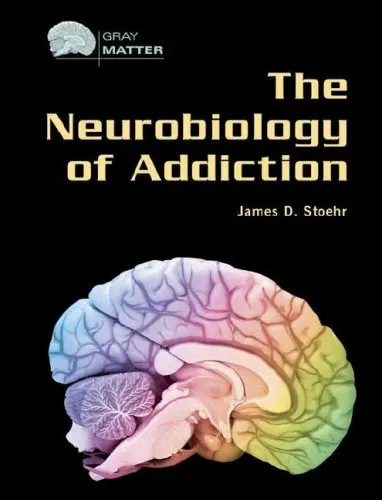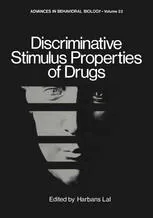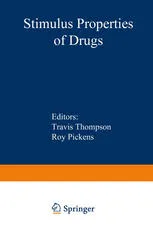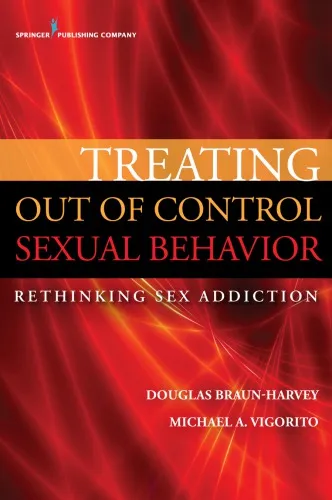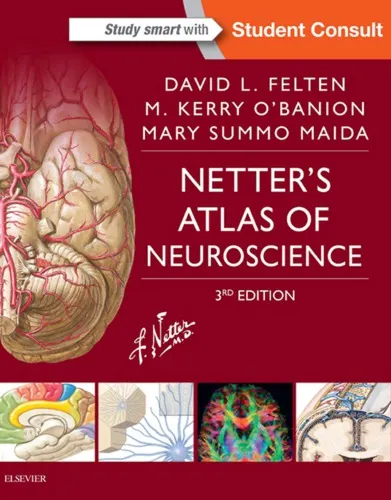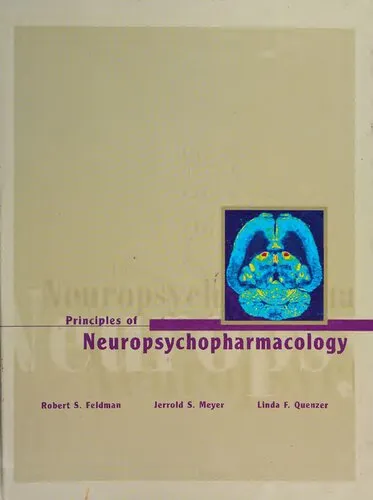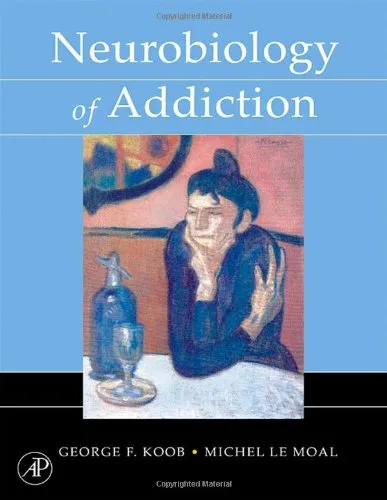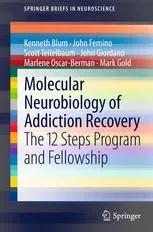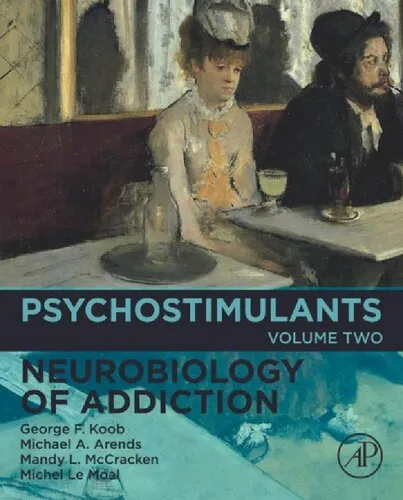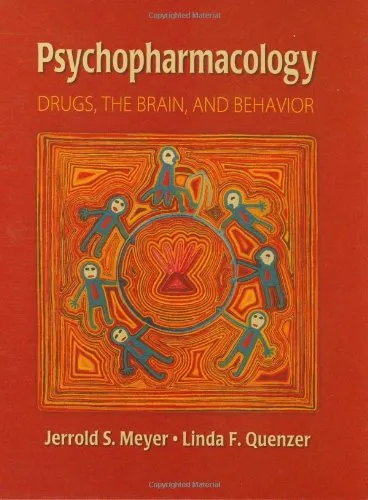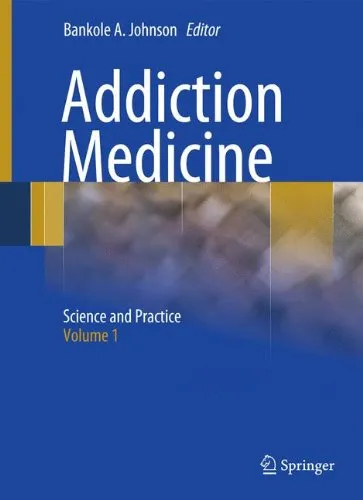The neurobiology of addiction
4.5
بر اساس نظر کاربران

شما میتونید سوالاتتون در باره کتاب رو از هوش مصنوعیش بعد از ورود بپرسید
هر دانلود یا پرسش از هوش مصنوعی 2 امتیاز لازم دارد، برای بدست آوردن امتیاز رایگان، به صفحه ی راهنمای امتیازات سر بزنید و یک سری کار ارزشمند انجام بدینکتاب های مرتبط:
معرفی کتاب "The Neurobiology of Addiction"
کتاب "The Neurobiology of Addiction" به قلم جیمز دی. استوهر، یکی از آثار برجسته و علمی در حوزه شناخت زیستشناسی اعتیاد است. این کتاب به طور عمیق به مبانی زیستی، عصبشناسی و مکانیسمهای پنهان در پس اعتیاد پرداخته و خواننده را با زبانی روان و پژوهشهای بهروز با مفاهیمی پیچیده آشنا میکند.
خلاصهای از کتاب
در این کتاب، نویسنده تلاش کرده است تا مفاهیم علمی و عصبشناختی پیچیده را به زبانی قابلفهم برای مخاطبان مختلف توضیح دهد. موضوع اصلی کتاب، بررسی این مسئله است که چگونه تغییرات در ساختار مغز و فرآیندهای شناختی میتوانند به Gravitational pull از مواد مخدر یا رفتارهای اجباری منجر شوند. یکی از نکات مهم این کتاب این است که اعتیاد تنها یک شکست اخلاقی یا ضعف شخصیتی نیست، بلکه یک اختلال عصبشناختی است که نیازمند روشهای درمانی مبتنی بر neuroscience است. نویسنده توضیح میدهد که مدارهای reward در مغز چگونه تحت تأثیر مواد اعتیادآور دستخوش تغییرات میشوند و در نتیجه، سیگنالهای مرتبط با لذت و تنبیه به شکل غیرطبیعی مدیریت میشوند. علاوه بر این، نویسنده به نقش عوامل ژنتیکی، محیطی و روانشناختی در ایجاد اعتیاد پرداخته است.
نکات کلیدی کتاب
- توضیح ساختار و عملکرد سیستم Dopaminergic در مغز و نقش آن در تقویت رفتارهای اعتیادی.
- بررسی تعامل پیچیده بین سیستمهای Reward، Stress و Memory در توسعه و استمرار اعتیاد.
- نقش Epigenetics در مستعدسازی فرد برای اعتیاد.
- ارائه مقایسهای بین انواع مواد اعتیادآور مانند الکل، نیکوتین، کوکائین و تاثیرات آنها بر مسیرهای عصبی مختلف.
- بررسی اختلال Tolerance و Dependence در سطح سلولی و مولکولی.
جملات مشهور از کتاب
"Addiction is not just a disease of the brain; it is a disease of human behavior rooted in an intricate interplay of neural mechanisms."
این جمله ارتباط عمیقی بین رفتار انسانی و عملکردهای عصبی که اعتیاد را تسهیل میکنند، به تصویر میکشد.
"The change in brain plasticity caused by addiction leaves a persistent scar that complicates recovery."
این جمله به چالشهای بازگشت به حالت نرمال مغز پس از ترک اعتیاد اشاره دارد.
چرا این کتاب اهمیت دارد
کتاب "The Neurobiology of Addiction" نه فقط یک کتاب علمی، بلکه یک سفر آموزشی برای تمامی افرادی است که میخواهند درک عمیقتری از اعتیاد داشته باشند. این کتاب برای دانشجویان رشتههای neuroscience، پزشکی، روانشناسی و حتی افراد علاقهمند به موضوعات اجتماعی و رفتاری بسیار مناسب است. با توجه به بحران جهانی اعتیاد و اثرات مخرب آن بر جوامع، درک مبانی بیولوژیکی این مشکل میتواند منجر به توسعه درمانهای مؤثر و سیاستهای پیشگیرانه شود. این اثر، گام بزرگی در جهت کاهش تصورات غلط و انگهایی است که معمولاً به افراد مبتلا به اعتیاد نسبت داده میشود.
Introduction to "The Neurobiology of Addiction"
Addiction has long been viewed as a primarily behavioral problem, but over the past few decades, advances in neuroscience have revealed its complex biological underpinnings. In "The Neurobiology of Addiction," I aim to explore the multifaceted nature of addiction, delving deeply into the intricate processes of the brain, the interplay of genetics, developmental factors, and environmental influences. This book unpacks addiction as a disease rather than a choice, offering insights grounded in research and lived experience. By presenting this information, I hope to bridge the gap between science and understanding, inspiring empathy and awareness about a condition that affects millions worldwide.
Detailed Summary of the Book
"The Neurobiology of Addiction" takes readers on a journey through the science behind substance use and compulsive behaviors. The book begins by laying a foundational understanding of how the brain works, highlighting key regions such as the prefrontal cortex, amygdala, and reward pathways dominated by dopamine and related neurochemicals. These brain systems are integral in both survival-driven behaviors and the mechanisms that foster addiction.
Subsequent chapters delve into topics such as the genetics of addiction, showing how inherited susceptibility interacts with an individual's environment. The role of stress, trauma, and early childhood experiences is emphasized, demonstrating how adverse conditions create vulnerabilities later in life. Importantly, the book doesn't just focus on substances like alcohol or opioids but also addresses behavioral addictions like gambling, internet addiction, and overeating, highlighting shared neurobiological pathways.
The book also explores the chronic and relapsing nature of addiction, explaining how repeated exposure to substances or behaviors alters brain circuitry, making recovery an uphill battle. Yet, it offers hope by elaborating on evidence-based treatments, notably pharmacological interventions and therapies like cognitive-behavioral therapy (CBT), mindfulness practices, and community-based support systems. By the end, readers are left with a comprehensive and empathetic understanding of addiction as both a personal and societal challenge.
Key Takeaways
- **Addiction is a brain disease:** It arises from the interplay of neurobiology, genetics, and environmental factors, rather than being a moral failing or a simple lack of willpower.
- **The reward system is central:** Dopamine and the brain's reward circuitry are hijacked during addiction, leading to compulsive seeking behavior.
- **Stress and trauma matter:** Early life experiences and chronic stress play a pivotal role in creating vulnerability to addictive behaviors.
- **Recovery is possible:** While addiction fundamentally alters brain functions, neuroplasticity allows for healing with the right combination of support, treatment, and time.
- **Addiction is not just substance-based:** Behavioral addictions share similar neurobiological underpinnings with substance use disorders.
Famous Quotes from the Book
“Addiction is not the triumph of will; it is the surrender of brain systems designed to ensure survival.”
“By understanding the brain’s role in addiction, we can move past blame and into treatment, past stigma and into compassion.”
“Neurobiology doesn’t absolve responsibility, but it reframes the conversation around what support and interventions are actually necessary to help individuals rebuild their lives.”
Why This Book Matters
In an era where addiction continues to devastate individuals, families, and entire communities, understanding its roots has never been more critical. "The Neurobiology of Addiction" is significant because it doesn't just inform—it empowers readers to see addiction through a scientific and compassionate lens. Too often, discussions around addiction are couched in misunderstanding and judgment, perpetuating stigma and, ultimately, sabotaging recovery efforts.
By presenting accessible scientific explanations, this book equips healthcare workers, educators, loved ones, and individuals facing addiction themselves with tools to identify, address, and approach addiction constructively. Further, it contributes to societal conversations, shaping how policies, healthcare systems, and organizations approach addiction treatment and prevention. Ultimately, this book is a call to action, urging readers to shift from blame to support, from ignorance to awareness, and from stigma to solutions rooted in science.
دانلود رایگان مستقیم
شما میتونید سوالاتتون در باره کتاب رو از هوش مصنوعیش بعد از ورود بپرسید
دسترسی به کتابها از طریق پلتفرمهای قانونی و کتابخانههای عمومی نه تنها از حقوق نویسندگان و ناشران حمایت میکند، بلکه به پایداری فرهنگ کتابخوانی نیز کمک میرساند. پیش از دانلود، لحظهای به بررسی این گزینهها فکر کنید.
این کتاب رو در پلتفرم های دیگه ببینید
WorldCat به شما کمک میکنه تا کتاب ها رو در کتابخانه های سراسر دنیا پیدا کنید
امتیازها، نظرات تخصصی و صحبت ها درباره کتاب را در Goodreads ببینید
کتابهای کمیاب یا دست دوم را در AbeBooks پیدا کنید و بخرید
1261
بازدید4.5
امتیاز0
نظر98%
رضایتنظرات:
4.5
بر اساس 0 نظر کاربران
Questions & Answers
Ask questions about this book or help others by answering
No questions yet. Be the first to ask!
